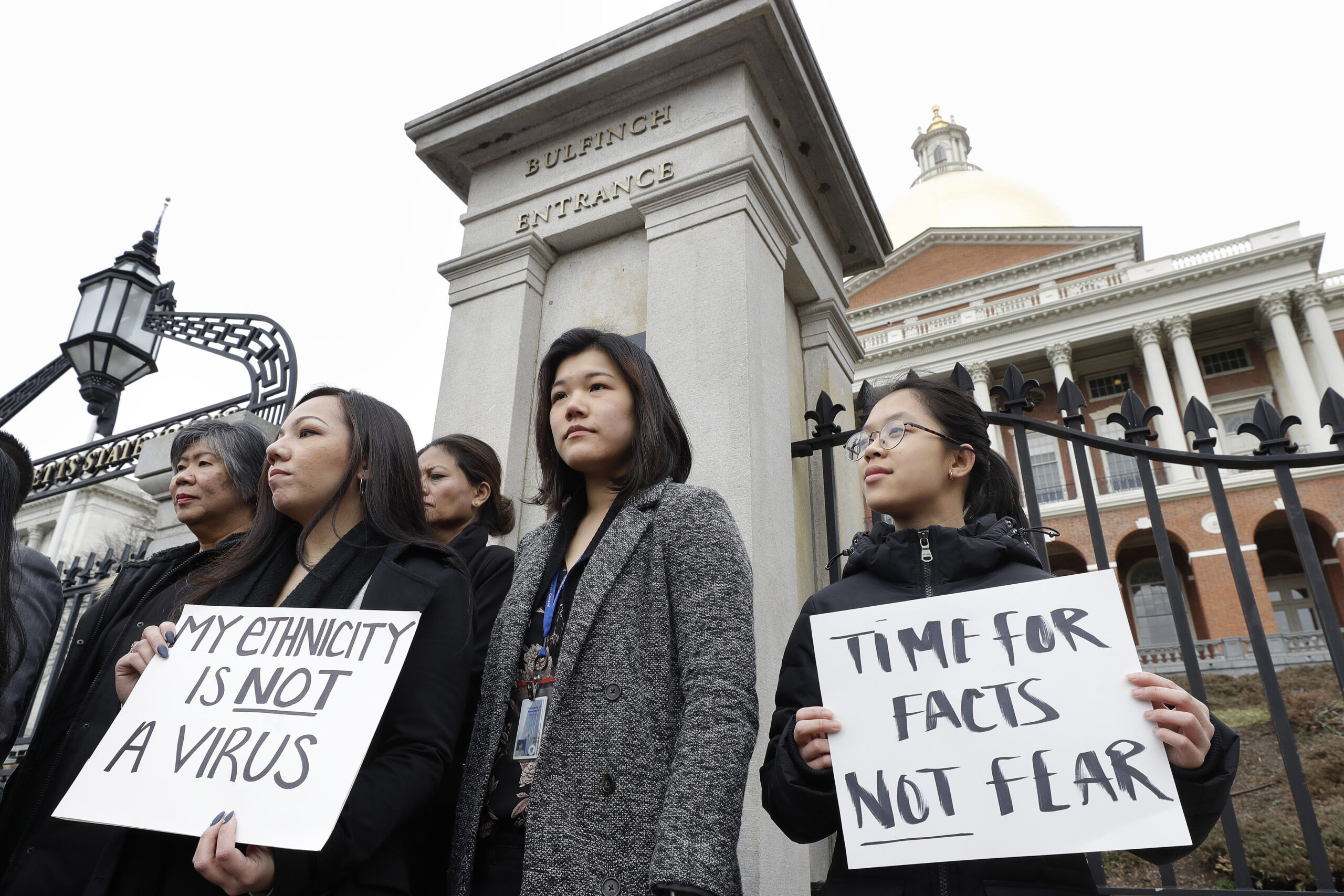Local Advocates Concerned About Anti-Asian Racism Amid Pandemic

In Boston, protesters stood together in March to condemn what they say is racism, fear-mongering and misinformation aimed at Asian communities amid the widening coronavirus pandemic that reportedly originated in China. Nationally, Asian Americans Advancing Justice is tracking anecdotes of discrimination, harassment and hate.
Steven Senne / Associated Press
Bronze plaques with the words “Wuhan Plague” have been glued on property around Atlanta.
The plaques went up on buildings and walls in mid-April. They have the words Wuhan Plague written on them and contain an image of Winnie the Pooh eating a bat.
According to the Atlanta Police Department, there are four reports of these plaques. No arrests have been made so far.
Swathi Shanmugasundaram, policy manager of the metro Atlanta chapter of Asian Americans Advancing Justice, says the medallions are an act of hate. The organization will host an online workshop Wednesday on anti-racism and what bystanders can do if they witness racism.
“It’s really sad to see that these have been going on around town. I think it’s important to all take the time to condemn it but also keep moving forward,” says Shanmugasundaram.
Nationally, Asian Americans Advancing Justice is tracking anecdotes of discrimination, harassment and hate. They’ve received more than 130 incidents since the end of February. The incidents have not been verified. The coronavirus reportedly first appeared late last year in Wuhan, China.
Shanmugasundaram says the plaques are a distraction from the issues the coronavirus pandemic is bringing up, including access to health care and poverty.
“The mayor denounces these ignorant acts of anti-Asian American sentiment and calls upon Atlanta to reject the politics of prejudice and division, and rally around our shared belief in One Atlanta,” a city spokesperson says.
Georgia does not have a statute on hate crimes.
The Atlanta Police Department has contacted the Homeland Security Unit, which investigates bias and hate crimes in the city, about the plaques. At this time, the plaques are not considered a bias crime.
The online tool STOP AAPI HATE has also been tracking coronavirus hate and harassment toward Asian Americans across the country.
Since mid-March, they’ve reported nearly 1,500 incidents of hate, harassment and discrimination across the country. Nearly three-quarters of the reports are verbal harassment. Most of the reports occurred in New York and California. About 1% of reports in the database occurred in Georgia.
“The volume of incident reports continues to be concerning. But, beyond the sheer numbers, we hear the impact of hate in the pain, humiliation, trepidation and fear in the voices of AAPIs (Asian Americans and Pacific Islanders) today.” said Manjusha Kulkarni, executive director of Asian Pacific Policy and Planning Council (A3PCON) in a press statement.
Shanmugasundaram says the anti-racism workshop is a response to an uptick in anti-Asian racism.
“To us, it’s clearly an incident of bias; it’s clearly harmful to our communities,” says Shanmugasundaram. “Rhetoric and images like this have dangerous consequences.”







